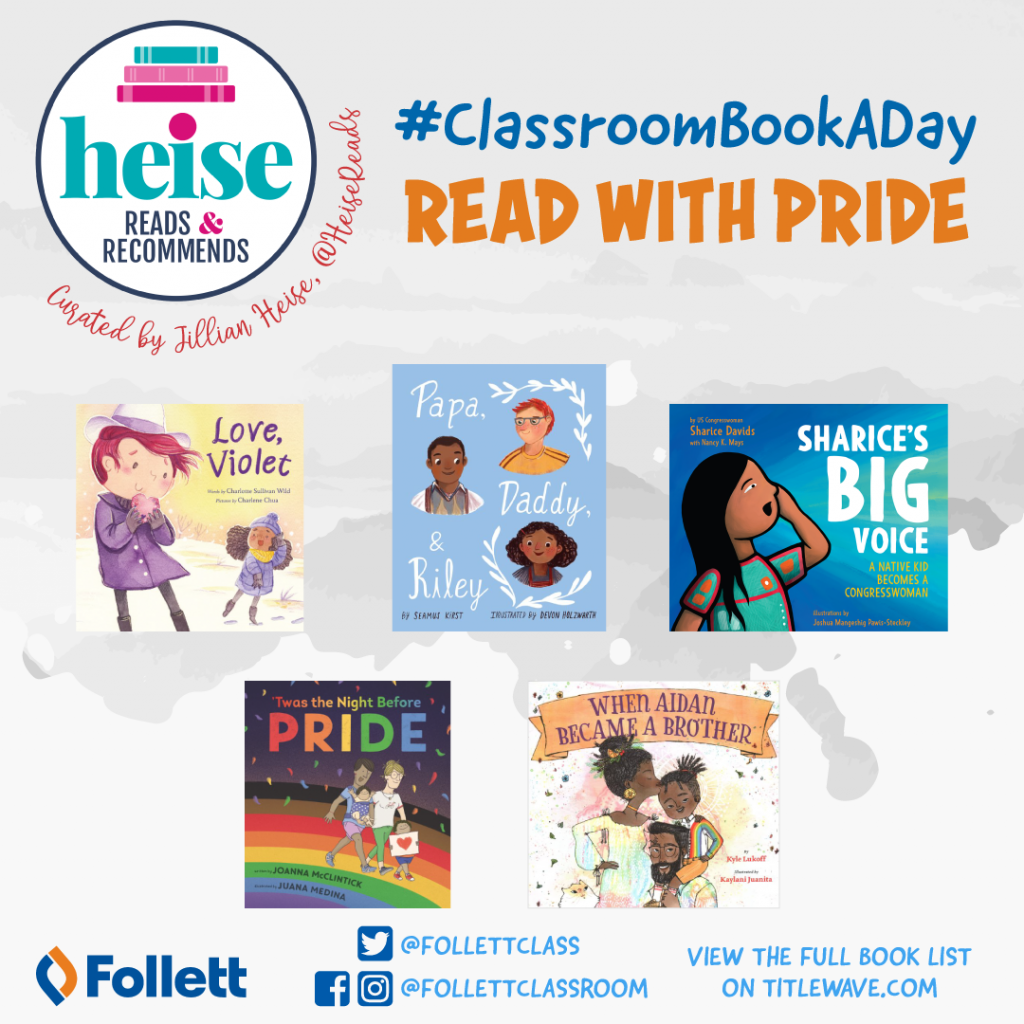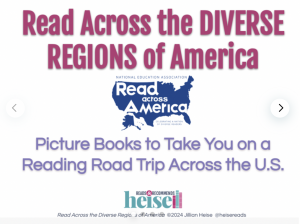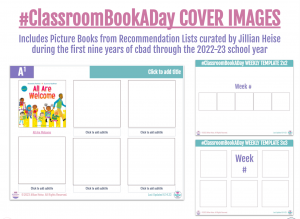In light of the nationwide attempts to implement “Don’t say gay” legislation in many states, this Pride Month hits a little harder for those in the community and those educators and librarians supporting the use of inclusive texts in our schools. Florida’s law prohibits classroom “discussion” and “instruction” about “sexual orientation” and “gender identity” in grades K-3, as well as any discussion or instruction about these topics that would be considered not age appropriate in the eyes of the State in grades 4-12. Ironically, it seems none of these politicians realized that simply referring to a teacher as “Mrs.” relates to gender identity & sexual orientation. *eye roll* Which just makes their actual motives more clear.
And Tango Makes Three, an award-winning & often challenged picture book, tells the true story of two male penguins in the Central Park Zoo who pair-bonded, built a nest, and with the help of a kind zoo-keeper, together hatched an egg. The book is written for children ages 4 to 8, but the new Florida law would prevent teachers from sharing or discussing this book with them. Since its initial publication in 2005, And Tango Makes Three has been challenged and banned countless times. The American Library Association has reported that it was the most frequently challenged book between 2006-2010, and the second most frequently challenged in 2009. It was also the fourth-most banned book between 2000 and 2009, and the sixth-most banned book between 2010 and 2019.
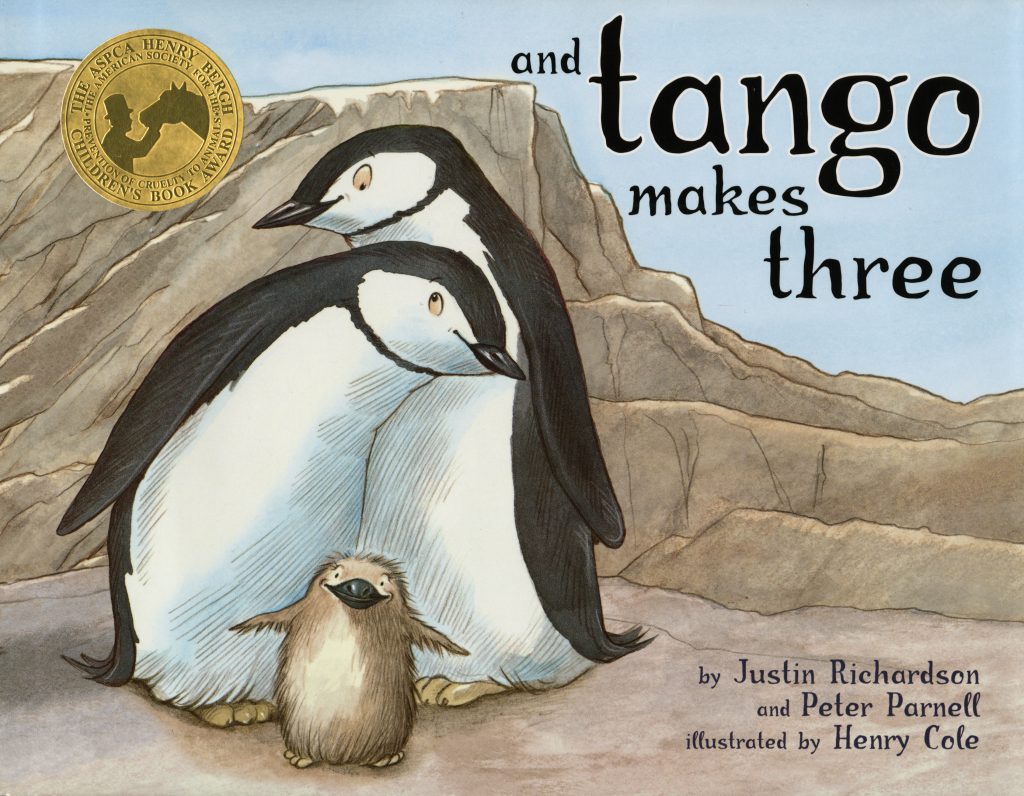
It is imperative that educators and parents share these kinds of developmentally age-appropriate books with children to help them see the vast diversity in our country and to understand that families and people exist in ways that may be outside of what is most familiar to each person. Censorship of facts about gay families and lives, like that required by these new laws, threatens the mental health of children with two moms or two dads as well as that of LGBTQIA+ children themselves.
And Tango Makes Three
Q&A with Authors Justin Richardson & Peter Parnell
1. Why this story?
Justin had a longstanding interest in parenting and in children’s sexual development. Around the writing of his book with pediatrician Mark Schuster, Everything You Never Wanted Your Kids to Know about Sex (But Were Afraid They’d Ask), he’d spoken widely with parents across the country about their challenges in talking to children about a range of issues related to kids and sex. One of the things that impressed him was the way parents, even those who wanted to raise their children with progressive ideas about sexual orientation, were haunted by the fear of speaking to them about topics or with language that wasn’t “age-appropriate.” When we read the new coverage of Tango and her two dads, it was instantly clear that telling this story would give many parents the way in they were looking for to talk about the diversity of families in the world.
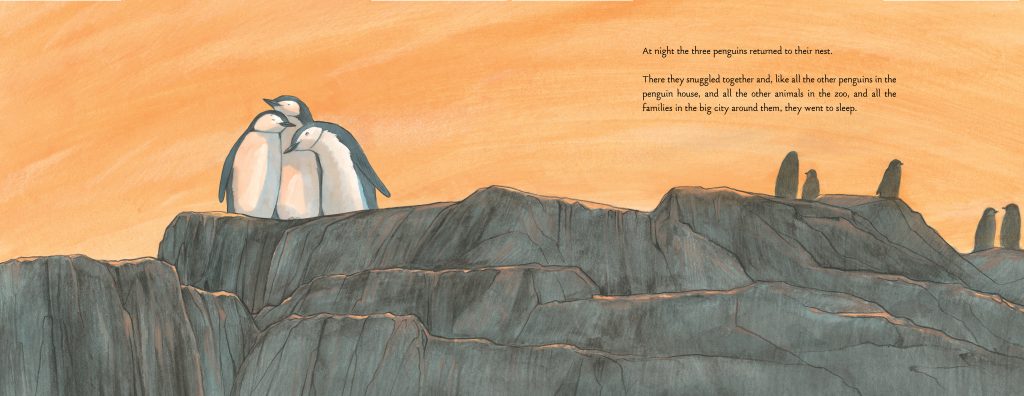
2. Did you consider writing a story with human characters instead of penguins?
No, because the story was true. We specifically didn’t want to anthropomorphize the penguins in the way that many other – though often wonderful — children’s picture books do. We tried hard – except for maybe one line in the book – not to ascribe human emotions or feelings to them.
3. When you wrote this book with young children in mind as the audience, did you find yourself changing things to make a better fit for that age group?
No. Although we studied about penguin behavior, and fact checked everything with the zoo, we were in part attracted to the story because it was true. Two little birds, different from the others, deeply want something they probably can’t have. They try and fail. Then a kindly grownup gives them just what they need. And their dream comes true. That is the arc of many wonderful stories. Very little needed to be changed.
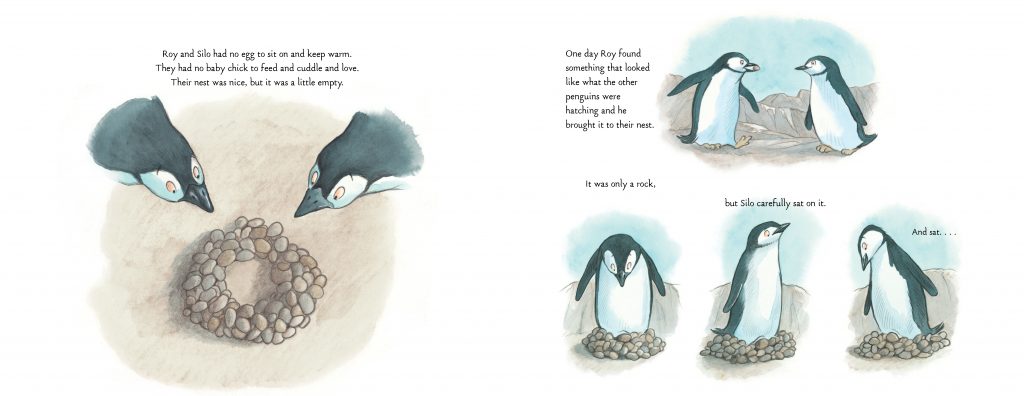
4. The thing I love about your book is that at its heart it’s about the love of family. Which seems like a message that could serve a greater purpose. What was your hope that readers would take away from your book?
Justin saw the potential in the story as being a way for parents to talk to their kids about families with two moms, two dads, parents using reproductive technology, and adoptive parents. We knew that to really reach these kids, they would need a story that spoke to them and their interests, in their own language and without didactics. And to your point, yes, we wanted to impart the idea it is love that can make a family in many different kinds of families.
5. And Tango Makes Three, has been one of the most challenged/banned books on the ALA list for the last 16 years. Why do you feel this particular book has struck such a chord of contention with those challenging it?
Well, the quick answer is homophobia — which, in spite of many gains, the LGBTQ+ movement is experiencing a new wave of. But it goes deeper than that. As we’ve said, talking about talking to your kids about sex – ANY kind of sex –can make parents crazy. It’s a basic fear – that talking about sex to kids will make them want to have it. (Not only is that not true, it runs counter to notions of tolerance and love and family that kids DO relate to). Since our story is about penguins, but written by humans for other humans, conservative parents and commentators see the book as a thinly veiled attempt to not only teach kids about accepting “sexual” difference, but to embrace it. As proof of this, one conservative group accused the book of depicting “graphic” gay sex, which, as far as we could tell, meant that the penguins “wound their necks around each other”. These fears keep the controversy surrounding the book alive. And today’s legislative efforts, for as long as they are allowed, to stand are cynical attempts to stoke and play on these fears for the lawmakers’ political gain.
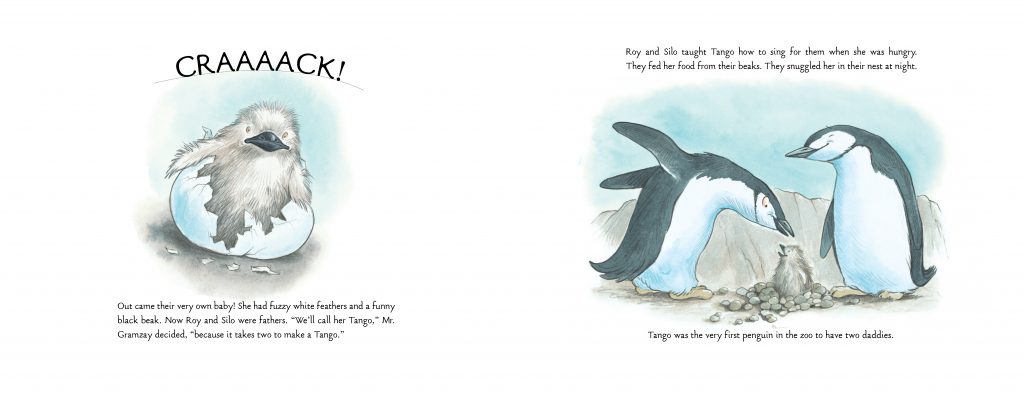
6. Beyond that, now many educators across the country have to fight against their state legislators who are trying to ban what they claim are “controversial” topics in the classroom (though we know someone’s identity should never be considered controversial & we shouldn’t be debating people’s humanity). What would you say to those in power creating these situations?
We’d say. “Please read our book. Just sit quietly and read it. Then meet a child with two moms or two dads and read it to them. And allow yourself to reconsider the effect on this child of eliminating our book from their classroom.”
7. What would your response be to a parent who claims that it’s not a school’s place to “teach” this topic (“this” presumably being that same-sex couples & marriage exist in our society)?
Our public schools have a responsibility to educate all children about the world in which they live. That includes introducing them to and helping them understand the diversity of people with whom they share this planet. Knowing about the various family structures they will encounter in their lives is an essential component of an elementary school education.

8. What do you feel will be the lasting consequences of these “don’t say gay” bills for today’s young people?
There is no question that laws such as these based on bigotry will have a negative impact on LGBTQ+ individuals. If these laws are allowed to stand, they will darken the school climate, embolden bullying, and damage the mental health of the children of LGBTQ+ parents and of children who are growing up to be members of the LGBTQ+ community themselves.
9. What are some other picture books with LGBTQIA+ representation that you would recommend?
Daddy, Papa and Me and Mommy, Mama and Me, both by Lesléa Newman
Julian Is A Mermaid by Jessica Love
The Family Book by Todd Parr
Find more recommendations for LGBTQIA+ picture books
in my Read with PRIDE booklist!
